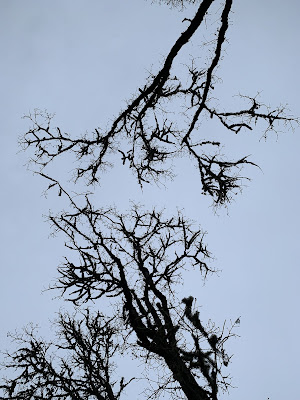Grattage is a surrealist painting technique that involves laying a canvas prepared with a layer of oil paint over a textured object and then scraping the paint off to create an interesting and unexpected surface. TATE
You must always live on the brink said Breton
& so the brink cut through our backyards.
Most days it felt like nothing
We didn't think of the street as old seafloor
Tess Taylor from Three Dreams, 2018, in Rift Zone: Poems (2020)
Our quest for language to describe weather, climate, the precise dynamic of atmosphere, amatory water and skippery beings eludes, elides. Words morph in and out of register, ghosts linger on the edges, transpire, Spolia of placed stones unsettles true beginnings. We all have an Origin Story. How-It-All-Began. Time Immemorial. To arrive at an End Story we make it up as we go along. A looping road trip of mind mood and matter.
Famously, Ray Bradbury conjured Fahrenheit 451: the temperature at which books burn. A 1950s guide framing how we think with what we sense. Do we read writings on the wall, messages ‘twixt dreamy lines, cries abandoned? Forecast fortune in the ash heap? Is Post-Fahrenheit — our here-now-and-then Fahrenheit 2021 — fiction metastasizing or factoid mutating?
Numbers abstract, turn away; the impossible inner temperature of the Sun. Earth’s molten iron core billons of years, no longer counting in the clockwork. Drive-time in the Solar System, once Mercury rising now accurately acute digitals telling on a scale normal more or less so.
Fahrenheit transcends personality, measurement, fear; enters the loving realm of metaphor. Lurking dynamics leer, beg for telling — and now they have it! A spoken picture, a cautionary tale: appearing as waxing moon. Circulating as desiring tide. Rising as blazing fire: The Original Fahrenheit; all spanking original, endlessly repeating… until you recall what was told.
IMAGES: Ridgeline Edgelands, Eugene Oregon 2021
… life and death are not opposite worlds, we are a single stem with two twin flowers, we must unearth the lost word, dream inward and dream outward,
decipher the night's tattoos and look face to face at the noon and tear off its mask,
bathe in the solar light and eat the nocturnal fruit, spell out the writing of the star and of the river,
remember what the blood, the tide, the earth, the body say, return to the point of departure,
neither inside nor outside, neither up nor down, at the crossroads, where the roads begin …
Octavio Paz, from The Broken Waterjar (Mexico City, 1955)
(trans. Eliot Weinberger, The Poems of Octavio Paz (2012), New Directions Books)
Paz (1914-1998) in 1990 was awarded the Nobel Prize.







